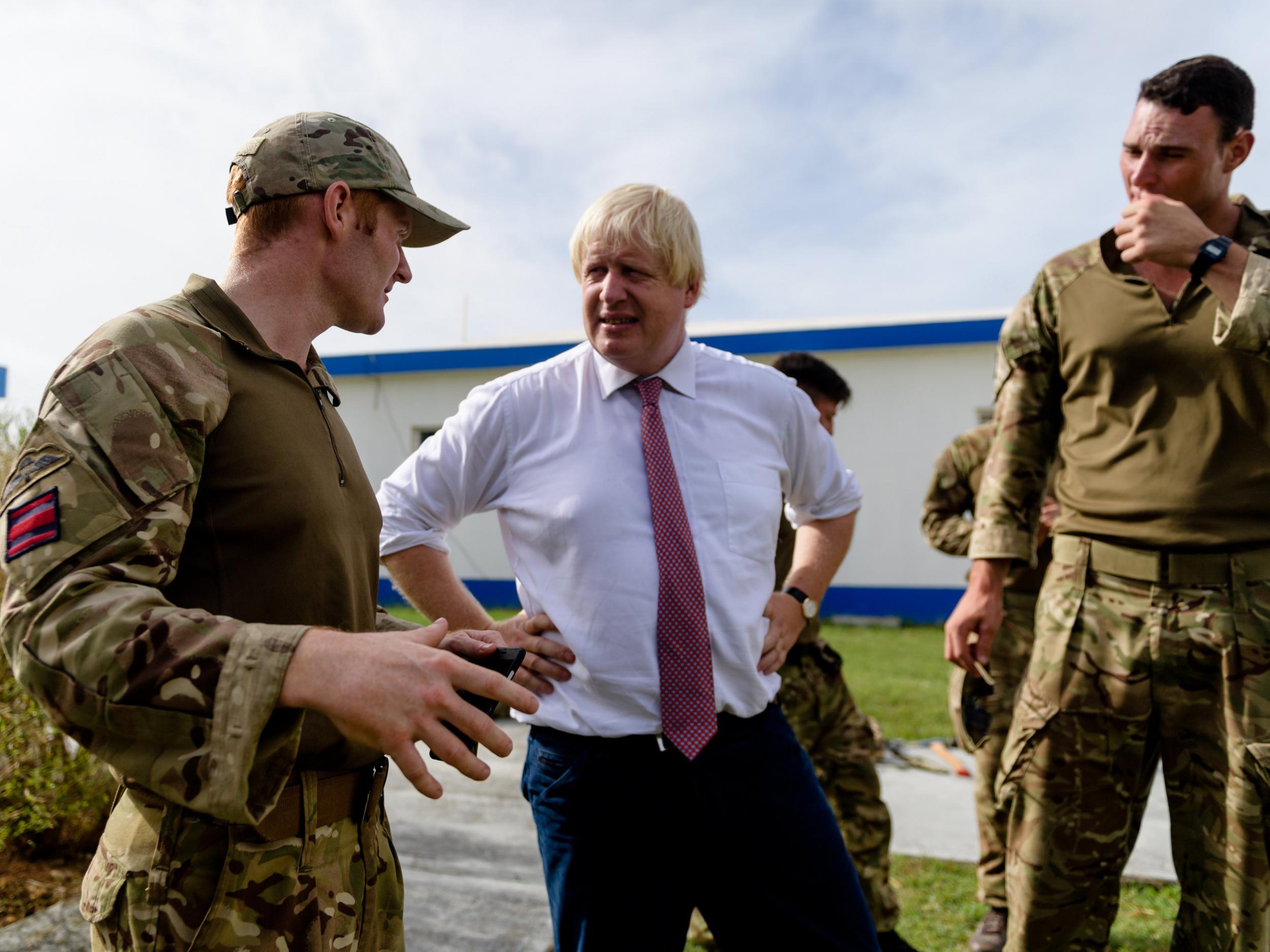Boris Johnson really has messed up his microscopic chance of being prime minister this time
His celebrity-politician star has already fallen. According to a poll last week, he is less popular with Tory party members than James Brokenshire


Something has gone wrong if the main reaction to an important statement is, “What on earth did he mean by that?” Everyone has a theory of why Boris Johnson, the Foreign Secretary, wrote his 4,000-word article yesterday, and they are all different.
One government source said to me: “I don’t think he knows what he’s doing. It is all very teenage – he wants to say something rude to his parents, doesn’t have the courage, so he whispers it.” Except that it wasn’t whispered: it was all over the headlines, including the front page of The Daily Telegraph. But it was in a code that allowed Johnson to say, as he did this morning, he was “all behind Theresa for a glorious Brexit”.
There had been warnings that the Bojo eruption was coming. A video popular on social media this week is of a hippo under water, creating a fast-moving wave before surfacing just behind the camera operator’s boat. Thus there were reports this week that the Prime Minister was trying to placate an “out of sorts” Johnson, who she feared might be about to resign. Before Johnson’s article was published, James Forsyth of The Spectator wrote that “there is quite a lot of nervousness” in No 10 about Johnson’s reaction to the speech Theresa May will give in Florence next week.
Now Johnson has surfaced, splashing and spray everywhere. Yes, it turns out that one of his aims would seem to be to stop May going too far in Florence in offering to pay for access to the single market. In his article, Johnson said: “We would not expect to pay for access to their markets any more than they would expect to pay for access to ours.”
That in itself tells us a lot about the strained relations at the top of Government. For a cabinet minister to go public on such a sensitive aspect of the Brexit negotiations suggests that he feels excluded from internal discussions. One of the most striking revelations about Johnson’s article is that he wanted to deliver a speech but that May wouldn’t let him. So it would seem he published it as an article without telling her.
It reads like a speech. Indeed, it reads like the party conference speech of a candidate in a leadership contest. It is well-written. It has some economics in it, quoting the 19th-century French economist Frédéric Bastiat on the opportunity cost of all the things Britain could have done if it hadn’t been in the EU. Johnson name-checks other ministers: Jeremy Hunt, Sajid Javid and his brother, Jo Johnson. They were all Remainers, and Johnson presents himself as the unity candidate, saying “those who voted to remain ... number some of the people I love the most in the world”.
Having built a bridge to Remainers, however, he then blows it up by repeating the £350m a week figure for our contribution to the EU. The actual figure is about half that, as Johnson well knows, and the £350m can only be arrived at by sophistry about the British rebate being given up by a possible future UK government. He knows how provocative this number is, because Vote Leave used the Remainers’ reaction to it in the referendum campaign to draw attention to Britain’s large net contribution.
To use it now can only be to try to strengthen his base among the Brexit hardcore: these are, presumably, the activists among MPs and party members who would drive his leadership campaign.
So those are probably Johnson’s two motivations: to influence the Government’s position in the Brexit talks, given that May is trying to keep him at arm’s length; and to prepare for the succession battle that everyone expects before the next election.
The reason for the confusion about his motives is that he is doing both so badly. His argument against paying any access fee for the single market looks as if he is against the idea of a transition period after Brexit. The point of this is that little would change – including our net contributions – and this has already been agreed by the Cabinet as the Government’s negotiating position.
As for his leadership ambitions, it is not clear that they have been advanced by his speech-article. His celebrity-politician star has already fallen. According to a Conservative Home poll last week, he is less popular with Tory party members than James Brokenshire, the Northern Ireland Secretary.
Nor will his his words do anything to endear him to the under-47 voters that the Tories need. His complaint about the “split allegiances” of the “young people with the 12 stars lipsticked on their faces” may have appealed to the “Land of Hope and Glory” wing of the Tory party, but it will alienate the very people Johnson was once able to attract as Mayor of London.

As Foreign Secretary for the world outside Europe there isn’t much for him to do. When the chance came for him to fly to Anguilla, the British overseas territory in the Caribbean hit by Hurricane Irma, he claimed the plane in which he arrived was “laden with aid” – only for Channel 4 News to contradict him.
Theresa May has, in any case, seen his leadership ambitions coming. One reason she brought Michael Gove, Johnson’s nemesis, back to the Cabinet was so that she had a Vote Leave leadership spare in case Johnson flounced out.
Johnson’s 4,000-word leadership bid is not, then, as the Telegraph billed it, “a positive and bold vision for Brexit,” but a sign of weakness and desperation.
Johnson may be making waves, but this hippo is drowning.
Join our commenting forum
Join thought-provoking conversations, follow other Independent readers and see their replies
0Comments